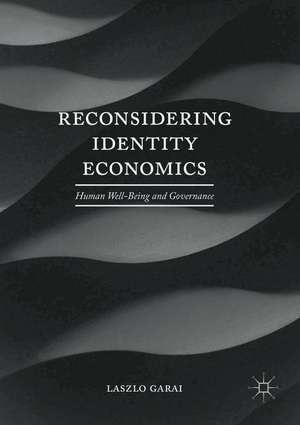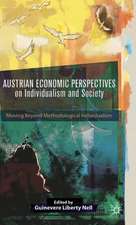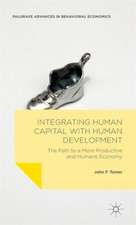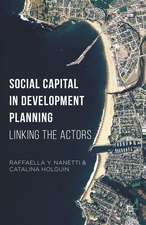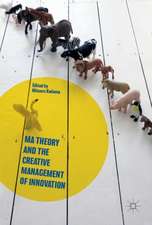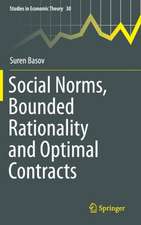Reconsidering Identity Economics: Human Well-Being and Governance
Autor Laszlo Garaien Limba Engleză Paperback – 31 ian 2019
| Toate formatele și edițiile | Preț | Express |
|---|---|---|
| Paperback (1) | 520.61 lei 6-8 săpt. | |
| Palgrave Macmillan US – 31 ian 2019 | 520.61 lei 6-8 săpt. | |
| Hardback (1) | 638.89 lei 6-8 săpt. | |
| Palgrave Macmillan US – dec 2016 | 638.89 lei 6-8 săpt. |
Preț: 520.61 lei
Preț vechi: 612.49 lei
-15% Nou
Puncte Express: 781
Preț estimativ în valută:
99.62€ • 104.29$ • 82.43£
99.62€ • 104.29$ • 82.43£
Carte tipărită la comandă
Livrare economică 05-19 aprilie
Preluare comenzi: 021 569.72.76
Specificații
ISBN-13: 9781349707263
ISBN-10: 1349707260
Pagini: 172
Ilustrații: XI, 172 p.
Dimensiuni: 148 x 210 mm
Greutate: 0.23 kg
Ediția:1st ed. 2017
Editura: Palgrave Macmillan US
Colecția Palgrave Macmillan
Locul publicării:New York, United States
ISBN-10: 1349707260
Pagini: 172
Ilustrații: XI, 172 p.
Dimensiuni: 148 x 210 mm
Greutate: 0.23 kg
Ediția:1st ed. 2017
Editura: Palgrave Macmillan US
Colecția Palgrave Macmillan
Locul publicării:New York, United States
Cuprins
1 Identity Economics, Indeed? A Psychological Introduction.- 2 The Double-Storied Structure of Social Identity.- 3 Identity Economics.- 4 How Outstanding Am I?.- 5 Preamble.- 6 Theses on Human Capital.- 7 Determining Economic Activity in a Post-Capitalist System.- 8 Is a Rational Socioeconomic System Possible?.- 9 The Bureaucratic State Governed by an Illegal Movement.- 10 The Paradoxes of the Bolshevik-Type Psycho-Social Structure in Economy.- 11 Inequalities' Inequality: The Triple Rule of Economic Psychology.-12 What Kind of Capitalism Do We Want?.
Notă biografică
Laszlo Garai was the Founder and Head of the Departments of Economic Psychology at the University of Szeged, Hungary, and Nice University, France. He has also taught at Moscow State University, Russia, and branches of California State University at Bakersfield and San Bernardino, USA. He is the author of 21 monographs in Hungarian and Russian on economic, social, and theoretical psychology.
Textul de pe ultima copertă
This book presents an unorthodox identity economics that approaches social identity through a non-classical psychology. Garai applies the modern physics concept of wave-particle duality to economic psychology, finding a corresponding duality in object-oriented activity and historically generated social identity. These two factors interconnect to create a double-storied structure of social identity and its behavioral manifestations. The book then presents a calculation device for mediating between behavioral and identity economics. Garai then applies all these factors to two socioeconomic systems developed during the second modernization: Bolshevik-type “socialism” and post-Bolshevik “capitalism.” In this context, he examines the Eastern Bloc nomenklatura as a duality of bureaucratic and patron-client organization (“state and party”) and the establishment of both today's material capitalism and its other half: human capital economics.
“Laszlo Garai'sReconsidering Identity Economics gives a new theory that intertwines people’s psychology and their economics: their psychology (and especially their identities) is the result of their economic environment; their economic environment is the result of their psychology. Garai illustrates this new view of economics and psychology with applications that are drawn from his lifelong experience and that will fascinate all readers.”
—George Akerlof, Nobel Laureate in Economics, 2001
Caracteristici
Applies physics concepts to evolving economic psychology Develops a theory to mediate behavioral and identity economics Examines socialism and capitalism as developed by Soviet and Eastern Bloc countries
